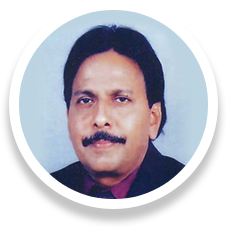The Power of Silence
The great power of silence in communication is well known. As the ancient Roman philosopher and statesman, Cicero pointed out; ‘Silence is one of the great arts of conversation’. When you are silent you are better able to listen to and understand others words and ideas. Silence will give you enough space to discover what is being revealed verbally or nonverbally.
Moreover, silence can be a sign of respect. It can indicate empathy and compassion. Some use silence as the language of real love. It can be more musical and romantic than any song that touches the souls. Silence can be an expression of contemplation. In some occasions, it may signal assent and favor as well as dissent and disfavor. Silence can be permission or it can be a distinct denial.
Many great leaders and orators use silence or pause in their public speeches to emphasize any point or idea so that it may sink deep into the hearts of the audience. As the famous American Poet, Emily Dickinson said; ‘Saying nothing, sometimes says the most’. However, silence is the most underutilized skills in communication. As the famous American Psychologist and philosopher, William James advised; ‘It is important to cultivate your silence power as your word power’.
Silence as a spiritual practice
The true value of silence is unknown to the modern man who is destined to live in the techno-noisy and hectic world. He doesn’t have time to be silent and listen to his inner voice. Hence many spiritual leaders and teachers suggest observing silence for at least 20 minutes every day. It is a powerful tool for personal and spiritual growth.
Swami Sivananda advised his disciples and followers to observe silence on a regular basis. It was a compulsory practice for all in his Ashram. The famous Indian philosopher and yogi, Sree Aurobindo practiced silence daily for 17 years regularly. Mahatma Gandhi used to observe complete silence for a full day once in a week. He had confessed that this practice gave him abundant mental power and tranquility. Sri. Ramana Maharishi pointed out; ‘Mouna (silence) is the state which transcends speech and thought, it is meditation without mental activity’.
The famous writer, Dr. Deepak Chopra advises observing silence every day regularly because this will bring out the creativity and mental powers hidden within an individual. It is in pure silence that you know your true self; you know your own power and magnificence. According to the renowned British philosopher and statesman, Francis Bacon; ‘Silence is the sleep that nourishes wisdom’. It is a magical means for personal and spiritual self- development. In silence, you can experience an amazing sense of inner peace and happiness.
The ancient Chinese philosopher, Lao Tzu considered silence as a source of great strength. It was Antony Strano, the famous Italian Australian writer and spiritual teacher who said; ‘Silence – deep inner silence- opens the pathways to spiritual self-discovery.’ Mother Theresa once pointed out; ‘God is the friend of silence. See how nature, trees, flowers, grass grow in silence. See the stars, the moon, the sun, how they move in silence. We need silence to be able to touch souls’,
The universe has a rhythm and we all are part of this musical rhythm. It is in silence that we experience this universal rhythm and the rhythm of nature. But the modern technological amenities and gadgets are preventing us from experiencing the blissful silence. The soul of every individual craves to experience the real bliss of silence. But he lives in great distress with a turbulent and noisy mind. Modern man has lost his connection with his inner self and that is his greatest disaster. It is in a deep silence that the human mind becomes still and noiseless and the tides of thoughts and emotions subside. The inner eyes will be open only in silence. It is in pure silence that one experiences the subtle vibrations of creation and hears the divine voice of eternity. It is in deep silence that man can reconnect with the eternal source of power and bring down the free flow of cosmic energy.
Holistic health benefits of silence
Research studies have shown that the practice of silence can bring about amazing health benefits. These benefits can be classified in to physical, psychological and spiritual as follows.
Physical benefits
The famous Italian physician Dr.Luciano Bernardi found in his 2006 study that silence was more relaxing than music. Even two minutes of silence can lower blood pressure and heart rate to a healthy level. This will help to prevent cardiovascular diseases and heart attack.
Silence can also lower blood cortisol and adrenalin levels. The practice of silence can prevent plaque formation in the arteries It can boost your immune system and improve your general health.
Psychological benefits
Several studies have shown that silence reduces mental stress and relaxes the mind. It brings about clarity of mind and improves creativity. It enhances confidence as well as analytical and problem-solving abilities.
A 2013 study found that two hours of silence could create new cells in the hippocampus region of the brain which is linked to memory, learning, and emotions. It improves memory power and decreases the risk of dementia which is caused by brain cell damage. Also, silence can improve your concentration and learning abilities. It helps to remove negative emotions like anger, hatred, depression, etc. A lot of mental energy can be conserved by observing silence.
Spiritual benefits
It is found that silence can improve your self-awareness which will help you to move forward in the journey of self-discovery. It is in silence you know your true self, you know clearly your own hidden powers and magnificence.
According to Robert Sardello, the famous American psychologist, author, and co-founder of the School of spiritual psychology; ‘Silence is the entrance into the deepest experience of being.’
How to practice silence.
It is better to practice silence on a regular basis every day as part of your daily routine. Find a place you can sit comfortably and quietly, undisturbed by others and external voices and noises. You can sit in sukhasana or on a chair with your spine straight, with closed eyes. Breathing must be slow and natural. Be aware of your breathing in and out. Thoughts may rush into your mind, let them come and go, you need not be concerned about them. You merely observe or witness these thoughts without any involvement or emotion. You need not try hard to expel or entertain them but merely be aware. Remain as an impartial observer. Then the thoughts will gradually subside and your mind will become free and noiseless.
In the initial stages, you may have a tendency or desire to talk to others. But you simply be aware of this desire and remain in silence, in pure awareness. Then, gradually the rising waves of thoughts will subside and your mind will become still and silent.
You can include some visualization also. When you breathe in imagine that the cosmic energy is entering and spreading all over your body. When you breathe out, visualize that all the negative energy and toxins are expelled from you. Thus, let it be a purification process.
Initially, you can observe silence for 5 minutes and gradually increase the time duration for 20 minutes. At the end of the practice, gradually open your eyes and move your limbs slowly. Then feel the changes in your body and mind.
If you have got enough time, you can increase the duration of this practice up to one hour. Once a month, you can observe silence for one full day.
Extensive scientific research has shown that regular practice of silence can bring about amazing benefits to an individual physically, mentally and spiritually. According to the famous English writer, William Penn; ‘True silence is the rest of the mind, and is to the spirit what sleep is to the body, nourishment, and refreshment’.
ABOUT THE AUTHOR

Dr. JOHN MUZHUTHETTU is a Human Resource Consultant, National Trainer, and Counselor. Formerly he was the Deputy Chief Engineer, Kerala State Electricity Board and is still working as an external faculty of HRD Programmes of KSEB. He is also a faculty of Department of Management Studies, Mar Augusthinose College, Ramapuram, under M.G.University, Kerala. He is the PG course co-ordinator of MHRM.
He is a columnist in several Magazines, like ‘Business Deepika’, ‘Creative Business’, ‘Donbosco’ etc. His articles have been published in many magazines and journals. His several speeches have been aired by All India Radio. His interviews on various subjects have been telecasted by Power Vision TV. He is the author of five best-selling books:
‘Stress-Manassasthra- Aathmeeya Pariharangel’. (Current Books, Thrissur) 4th Edition
Vijayiyude Vyakthithwam (Current Books, Thrissur)
Jeevitham Santhushtamakan, Nithya Yauvanam Nedan.(CSS, Thiruvalla)2ndEdition
Emotional Intelligence-Jeevithavijayathinu (CSS, Thiruvalla)
Vijayarahsyangal (Current Books, Thrissur)
As a trainer, he has conducted more than a thousand seminars and workshops for teachers, parents, students, executives and others, on several subjects like Stress Management, Time Management, Personality Development, Emotional Intelligence and Spiritual intelligence for Excellence, Communicative Skills, Assertiveness, Motivation, Study Skills, Effective Parenting, Counselling Skills etc. He is an external training faculty of Power Engineers Training and Research Centre of KSEB. He is an external faculty of IMG Cochin. He is also the Secretary of Upasana Cultural Centre, Thodupuzha.
Read More from Dr. John Muzhuthettu:
Greatest Lessons for Developing an Amazing Personality
Crying: A Holistic Self-Healing Process
Great Lessons of Public Speaking From the Greatest Orators of History
Social Connections: An Ideal Prescription for Holistic Health, and Longevity
Miraculous Powers of Forgiveness to Transform Your Life
The Magic of Charity Can Change Your Life
Impression Management: The Art and Science of Success
THE AMAZING SCIENCE OF PHEROMONES
FAILURES: THE HIDDEN SEEDS OF SUCCESS
THE AMAZING PSYCHOLOGY OF LUCK
SMARTPHONE ADDICTION- A SERIOUS MODERN MALADY
MEDITATION FOR BOOSTING YOUR BRAIN AND HEALING YOUR MIND: TIPS AND TECHNIQUES
20 SUPER TIPS FOR A GOOD NIGHT’S SLEEP

He is a Human Resource Consultant, National Trainer, and Counselor. Formerly he was the Deputy Chief Engineer, Kerala State Electricity Board and is still working as an external faculty of HRD Programmes of KSEB. He is also a faculty of Department of Management Studies, Mar Augusthinose College, Ramapuram, under M.G.University, Kerala. He is the PG course co-ordinator of MHRM.
He is a columnist in several Magazines, like ‘Business Deepika’, ‘Creative Business’, ‘Donbosco’ etc. His articles have been published in many magazines and journals. His several speeches have been aired by All India Radio. His interviews on various subjects have been telecasted by Power Vision TV.
He is the author of five best-selling books
- ‘Stress-Manassasthra- Aathmeeya Pariharangel’. (Current Books, Thrissur) 4th Edition
- Vijayiyude Vyakthithwam (Current Books, Thrissur)
- Jeevitham Santhushtamakan, Nithya Yauvanam Nedan.(CSS, Thiruvalla)2ndEdition
- Emotional Intelligence-Jeevithavijayathinu (CSS, Thiruvalla)
- Vijayarahsyangal (Current Books, Thrissur)
As a trainer, he has conducted more than a thousand seminars and workshops for teachers, parents, students, executives and others, on several subjects like Stress Management, Time Management, Personality Development, Emotional Intelligence and Spiritual intelligence for Excellence, Communicative Skills, Assertiveness, Motivation, Study Skills, Effective Parenting, Counselling Skills etc. He is an external training faculty of Power Engineers Training and Research Centre of KSEB. He is an external faculty of IMG Cochin. He is also the Secretary of Upasana Cultural Centre, Thodupuzha.




















